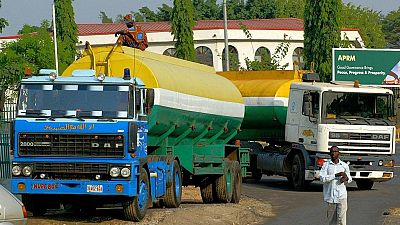Business Africa
A new laboratory findings has revealed that samples from illegal refineries in Nigeria’s Niger Delta is of a higher quality compared to imported petrol.
According to the report, black market fuel from illegal refineries hidden deep in the creeks of the Niger Delta is less polluting than the highly toxic diesel and petrol from Europe.
Publisher, Energy Times in Lagos,Nigeria, Kayode Ekundayo said diesel importation is deregulated in Nigeria and gives marketers avenue to import and make profit. Adding that marketers can sought for cheap products across the world and bring them into the market.
Ekundayo reiterates that the Nigerian National Petroleum Corporation (NNPC) remains the only importer of petrol due to unreconcilable difference between the Federal Government and oil marketers on access to forex and some other issues. He says NNPC on its side, looks for cheap product in order to cut cost.
Executive Chairman, Africa Energy Chamber NJ Ayuk noted that it is not a surprise to see local refineries producing better quality product for local consumption.
“I think this is something that is not new, it has always been there and I think there is always an issue where it comes with quality control. We have not done a good job not just in Nigeria or Niger Delta but across Africa in really checking on the quality of the product that comes in because what we have is that in Nigeria and across Africa, many of the products that comes in with poor quality that comes in from European refineries or middle east refineries in some case does not stand to the standard of as required in international best practices,” he added.
Ayuk reiterated that some marketers in the sector, give the business a bad name adding that such individuals should be dealt with.
“There is always going to be an unscrupulous character always trying to make an extra dollar or so but they but the real issue there is how are we going to maintain the standard, seeking compliance and ensuring that these standard are met. We have seen that in the product supply business, sometimes you need to have real government action in preventing fraud,” Ayuk said.
According to a recent report from Reuters, the United Nations Security Council, estimates that Nigeria lost $2.8 billion of revenue to oil theft in 2017, although Kpler says the minimum 100,000 barrels per day of $3 billion to $8 billion a year identified in a 2013 Chatham House report better approximates current losses.
Nigeria’s military in May this year, dismantled illegal refining sites in Niger Delta region which held 174 ovens laden with about 14,434 barrels of suspected stolen crude oil.
Although Nigeria presently has four conventional refineries chiefly controlled by the Federal Government under the Nigerian National Petroleum Corporation (NNPC), but none operate above 60 percent of its design capacity.
In an attempt to provide solutions to the above unfavorable scenario, the country is left with the following options: Establishment of more conventional refineries, legalization of illegal refineries, swapping of crude oil with refined products from other countries and setting up of modular refineries around the country.






![Cyber Africa Forum highlights Benin's bold digital resilience [Business Africa]](https://static.euronews.com/articles/stories/09/33/14/38/320x180_cmsv2_675083a0-3d42-5b59-aba8-cbd15242e6d9-9331438.jpg)
![AI drones lead breakthrough against malaria in Africa [Business Africa]](https://static.euronews.com/articles/stories/09/24/88/24/320x180_cmsv2_c81b5378-a4d6-5b79-a296-06f4879024b5-9248824.jpg)





01:22
Analysts warn of trade disruptions across Africa as Israel-Iran tensions escalate
01:33
Putin downplays threat of recession at Saint Petersburg Forum, points to growth in manufacturing
Go to video
World Bank: effective policy measures could halve air pollution by 2040
02:02
New report finds only seven countries met world clean air standards in 2024
01:00
Second day of extreme pollution in Sarajevo
01:40
Study finds private jet emissions have surge over past five years